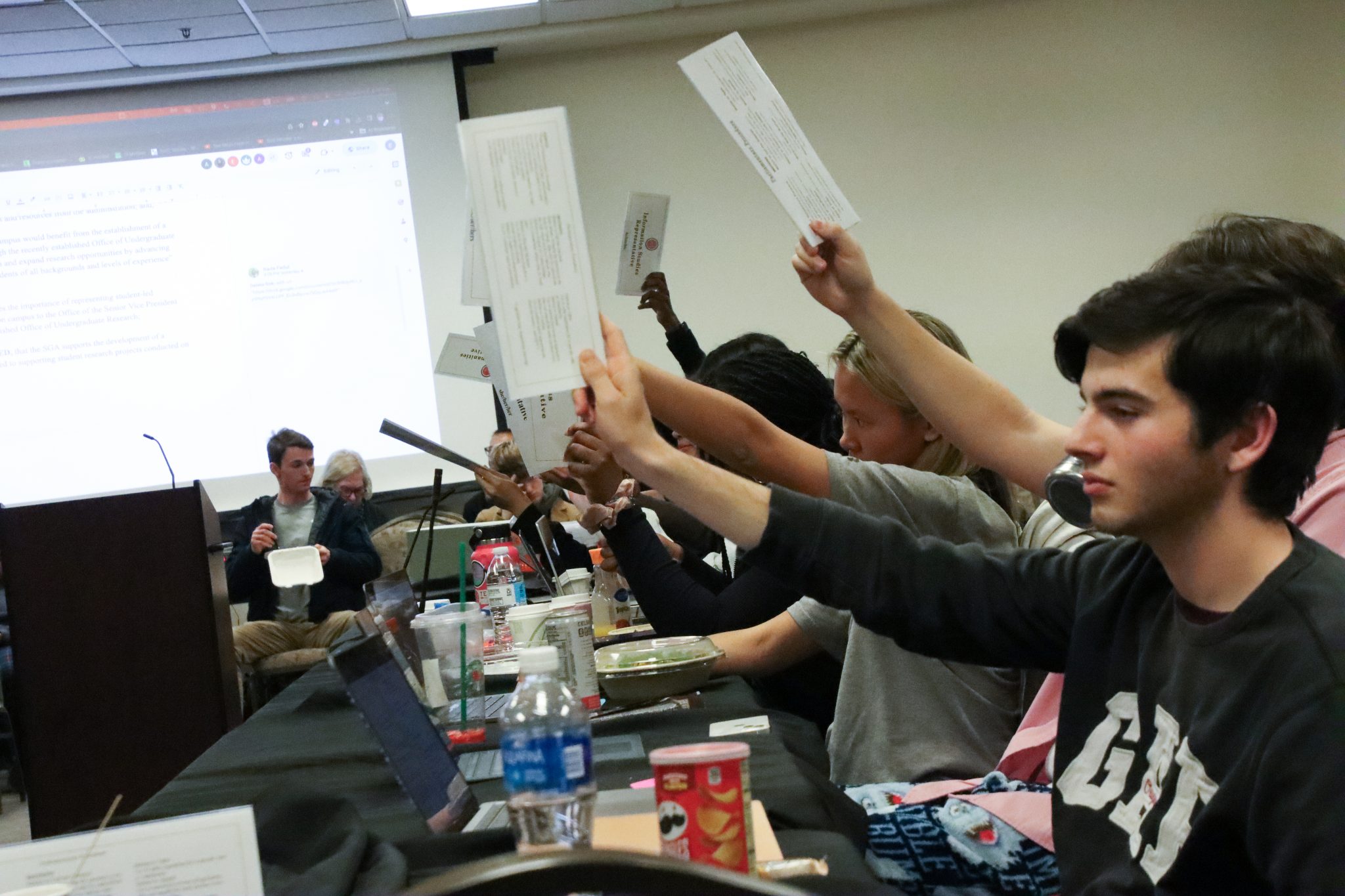The University of Maryland SGA passed six bills and debated election reform during the longest meeting of the year Wednesday.
In a meeting that lasted more than six hours, the Student Government Association passed bills regarding bus shelters, student fees, off-campus housing and class availability.
One bill encourages the Department of Transportation Services to audit this university’s shuttle bus system by collecting data on its use and students’ opinions on the system.
Another bill sponsors a survey to gauge students’ interest in the expansion of bus shelters around campus.
Joslyn Kim, the SGA’s undergraduate studies representative and the bill’s sponsor, believes the bill is important because the survey will provide crucial data to DOTS on student interest in these bus shelters.
“It’s very helpful for DOTS to have data and numbers like this that they can use to gauge student interest on a certain matter,” Kim, a sophomore enrolled in letters and sciences, said.
The SGA also passed a bill that endorses and supports a letter calling on university administration to help DOTS offset its budget deficit instead of increasing student fees.
[UMD SGA Safety Walk highlights broken lighting, inaccessible crosswalks]
Eliav Hamburger, the speaker of the legislature, sponsored the bill on behalf of the SGA’s executive branch and said DOTS lost funding over the COVID-19 pandemic.
“[That] has made it really hard for them to maintain their services at their current servicing rate, which is why we’ve been trying to search for alternative ways to fund them,” Hamburger, a junior computer engineering major, said.
The SGA also passed a bill aiming to collect student input on off-campus rental properties to be included in a 2023-24 housing guide.
Linsey Anderson, the SGA’s agriculture and natural resources representative, sponsored the bill to give students more personal advice on renting off-campus.
“I really thought that having something more in depth and really just collected from your peers, like having your friend recommend something to you, I thought that it would be really useful for people to have,” Anderson, a junior animal science major, said.
Other bills passed will promote legal resources for undocumented students through a promotional campaign and will advocate for increasing the availability of information studies classes.
The final bill discussed will update the SGA’s election calendar and rules. The SGA recessed before they were able to pass the bill.
Legislators debated ticket affiliates, types of tickets and campaign violations.
[UMD SGA, Health Center hold event to raise awareness about sexual health resources]
Previously, ticket leadership held affiliates — people who want to assist a ticket while not being on it — accountable. If the election bill passes, the election commission will hold affiliates accountable.
“Now ticket affiliates are formally run by the elections commission, which I think is a far more appropriate system that fixes a lot of the issues the system has historically had,” Nicholas Marks, a junior government and politics and secondary education major, said.
Marks has been involved with the SGA for multiple years and falsified dozens of petition signatures in the election appeal review process last spring. In a statement posted on social media in May, Marks took responsibility for the damage caused by the petition and said he made a “childish lapse in communication.”
Legislators considered whether executive and legislative tickets should be split. Members in favor of splitting the tickets said they should be split because the combined ticket causes cliquey behavior and makes it more difficult to break into SGA.
SGA president Alexandra DeBus called the partnering of the executive and legislative branches a conflict of interest because the legislative branch is intended to be a check on the executive branch.
The student government also discussed election violations and what systems to use to sanction those who commit infractions during their campaigns. The main debate on these systems revolved around whether intention — intending to commit an infraction — or severity should be more heavily taken into account.



